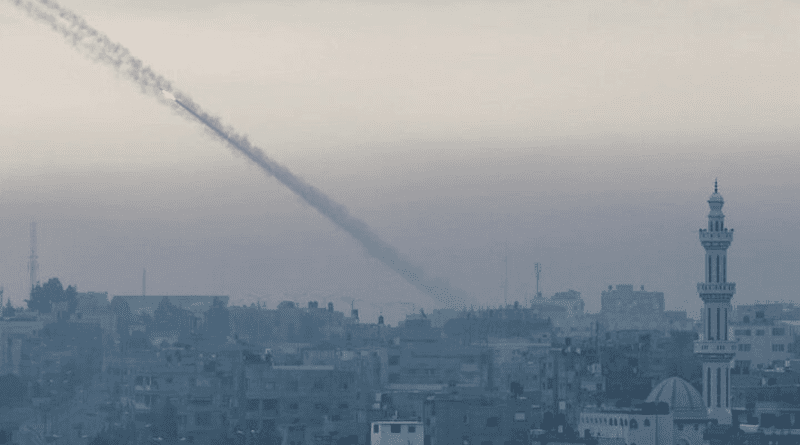Core Values And Realities In The New War – OpEd
By Arab News
By Kerry Boyd Anderson
For anyone who cares about Israelis and Palestinians, the last week has been heartbreaking. The suffering of so many people, especially children, is devastating. Furthermore, such moments often highlight and exacerbate the worst in human nature, as so many people — including political leaders and media commentators — retrench into group mentality and respond by oversimplifying and dehumanizing the “enemy.”
Humans are “groupish,” as social psychologist Jonathan Haidt says. We have a strong tendency to identify with our group, especially when our group is attacked, and to collectively brand everyone in the other group as hostile and responsible for our group’s pain.
The Oct. 7 attack by Hamas and other militant groups stemmed from their belief that all Israelis are responsible for the repression of Palestinians; Hamas justifies murdering civilians, taking hostages and committing atrocities by arguing that all Israelis are culpable for Palestinians’ suffering. Several Israeli leaders have, in turn, suggested that all Palestinians in Gaza bear responsibility for Hamas’ attack; with this logic, they justify the widespread killing of civilians in Gaza. This cycle of collective blame and dehumanization will only feed more violence.
In the face of such extreme violence, it is difficult to maintain our humanity and core values. How can one blame a parent who has lost a child, for example, for raging at all people on the other “side?” That is exactly why political and military leaders and media figures must take on the responsibility of upholding core values at times of intense anger and hurt.
In all conflicts, two key principles should drive policy, reporting and discussion. First, all lives matter, regardless of nationality, religion, race, ethnicity and so forth. In this case, Israeli and Palestinian lives all matter. Second, targeting civilians is always wrong. Decades of repression and occupation do not justify targeting civilians. Responding to a horrific attack does not justify targeting civilians. The Hamas attack included the intentional murder of Israeli civilians and the taking of Israeli civilians, including children, hostage. This must be condemned. Israeli attacks that target Palestinian civilians must equally be condemned. A corollary to this principle is that operations against military targets must take genuine steps to limit collateral damage to civilians.
When it comes to the specific Israeli-Palestinian conflict and the war today, leaders and media figures also should recognize three essential realities. First, two peoples — Israelis and Palestinians — want the same land. Both believe that they have a legitimate claim to the same land.
Second, neither Palestinians nor Israelis are going anywhere. In a speech last week, US President Joe Biden told a story about meeting Golda Meir, who was then the prime minister of Israel, in 1973. Biden said she told him that Israelis “have no place else to go.” Indeed, after surviving genocide in Europe, establishing the state of Israel and living in it for decades, Jewish Israelis have developed a unique identity and are not going to return en masse to Europe or the many other places from whence they or their parents, grandparents or great-grandparents came.
Similarly, Palestinians have nowhere else to go. Some Israelis still try to argue that “Palestinian” is not a real identity, but this is a ludicrous view. Palestinians are not just “Arab,” capable of moving to Egypt or any other Arab country with relative ease. Their families and communities have roots in the land that go back many generations. Furthermore, after decades of conflict, Palestinians have developed a distinct identity based on shared trauma and common experiences as a stateless people.
The Palestinians of Gaza have nowhere else to go. More than half of them are already refugees from previous wars and have no interest in becoming refugees again, despite the hellish experience of living in Gaza. Even those who might choose to leave cannot do so.
Calls from Israeli authorities for Palestinian civilians to leave Gaza were disingenuous, as Israel will not allow them to cross into Israel and it knows that Egypt will not allow thousands or millions of people to flow into its territory. As if to prove the point, Israel bombed the Rafah crossing into Egypt. Furthermore, telling more than 1 million people to evacuate through a war zone in one of the world’s most densely populated areas is hardly a form of responsible protection of civilians.
Third, there is a fundamental imbalance of power in this conflict. Israel is by far the more powerful player, in terms of military and economic might. That is no excuse for the extreme brutality of Hamas’ attack. Rather, the power imbalance is a reality that foreign powers must acknowledge in order to support any viable peace.
The Oct. 7 attack launched a new phase in the Israeli-Palestinian conflict, and it will be extremely bloody. The current war reminds the world that the conflict has not been resolved, despite many efforts to sweep it under the rug. Leaders in Washington, Europe, Arab states and elsewhere who want such suffering and instability to end must start by acknowledging the humanity of Palestinians and Israelis and, crucially, accepting that neither is going anywhere. The only path to peace is to find a way for Israelis and Palestinians to live in the same land with equal rights, safety and hope for the future.
- Kerry Boyd Anderson is a writer and political risk consultant with more than 18 years of experience as a professional analyst of international security issues and Middle East political and business risk. Her previous positions include deputy director for advisory with Oxford Analytica. X: @KBAresearch

